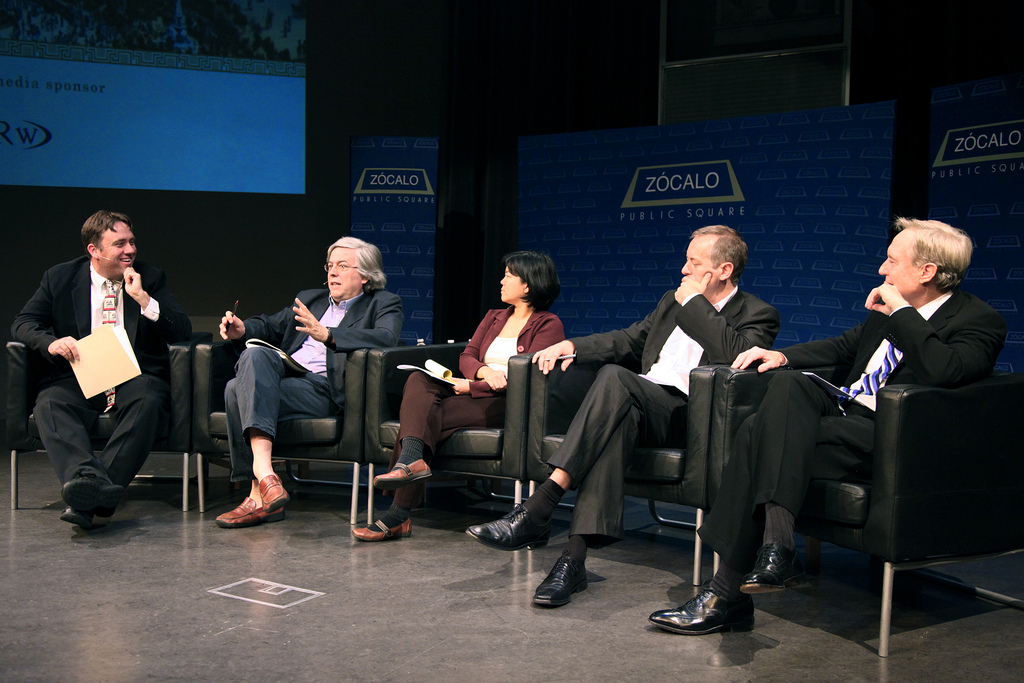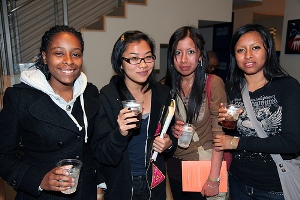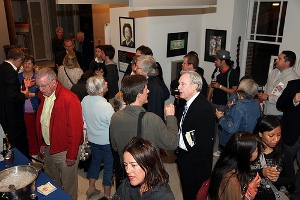
Besides being dream destinations for immigrants and global centers of finance, Zurich and Los Angeles share the unusual distinction of being de facto capitols of the world’s leading laboratories of direct democracy. As journalist Joe Mathews explained, Switzerland and California use citizens’ initiatives and referenda more often and with more force than anywhere else in the world. Although, he added, “Oregonians have some argument there.”
In an event co-presented by the Huntington-USC Institute on California and the West and in collaboration with the Consulate General of Switzerland, Mathews joined Swiss National Parliament member Andreas Gross, Swiss journalist Bruno Kaufmann, attorney George Kieffer, who led the 1999 Los Angeles Charter revision, and California Common Cause Executive Director Kathay Feng to consider the systems of democracy in each place, who does it better, and what exactly democracy means.
Safety valves
 California and Switzerland both employ initiatives and referenda – that is, citizens’ efforts aimed at either launching a law or reversing a legislative act – but in vastly different political and cultural atmospheres, the panelists noted. As Gross explained, in the 19th century, Switzerland realized that electing a parliament alone does not a democracy make. “The basic line of democracy is that life is not destiny. You have instruments where you can influence your existence,” he said. Between elections, the Swiss wanted instruments to influence the decision-making process directly.Votes on initiatives occur on different days from votes on representatives, and initiatives require a long period of public debate before the vote. As Kaufmann said, “Debate before decision-making is key to democracy. Otherwise, there’s no difference from a dictatorship.”
California and Switzerland both employ initiatives and referenda – that is, citizens’ efforts aimed at either launching a law or reversing a legislative act – but in vastly different political and cultural atmospheres, the panelists noted. As Gross explained, in the 19th century, Switzerland realized that electing a parliament alone does not a democracy make. “The basic line of democracy is that life is not destiny. You have instruments where you can influence your existence,” he said. Between elections, the Swiss wanted instruments to influence the decision-making process directly.Votes on initiatives occur on different days from votes on representatives, and initiatives require a long period of public debate before the vote. As Kaufmann said, “Debate before decision-making is key to democracy. Otherwise, there’s no difference from a dictatorship.”
California’s reforms came at the turn of the 20th century, when railroad interests seemed to hold too much power in the budding state, Feng said. The progressive movement led by Hiram Johnson looked at Switzerland for a “safety valve for voters, when we feel our government is not being responsive.” Feng noted that the initiative process does still work this way in some cases, as with California’s latest redistricting reform – legislators had little interest in shifting districts designed to keep them in office. “Not just because I wrote it, but it is one of the examples where you do want to use direct democracy,” Feng said.
Litmus tests and TV ads
But the problems of California’s initiative process are well-known, the panelists noted. Feng said that the influence of money is the biggest challenge, along with the number of initiatives placed on the ballot. “It becomes a real money race,” she said. Those with money have the best chance of getting something on the ballot, and television ads replaced deliberation, decision-making, and the dissemination of real information. As Gross said, “I don’t understand why you only have entertainment.” While Feng praised what she called “a very robust system of campaign disclosures,” she argued that initiatives are so complex that we vote based not on information but rather on a “litmus test” of whether we like the funder or not.
Kieffer noted that the problem goes beyond California, and involves the difference between American and Swiss political cultures. “We equate, constitutionally, money with free speech,” he said. Whereas Switzerland doesn’t allow TV ads for campaigns, some in the U.S. would consider it unconstitutional, even immoral to ban them. “It tells you how these systems can grow up so differently,” Kieffer said. Gross agreed about the different cultures, noting that California and Switzerland have different relationships between legislatures and people. “The Swiss state has not so much power. A lot of power is still in civil society.” In fact, he noted, the Swiss can’t spend more than $9 million of public money without consent of the people.
 But as Kaufmann pointed out, both countries face a common challenge of a diminishing press, which means less information on initiatives for the public. Feng and Kieffer both pointed out how much the media landscape has changed in the U.S. – particular channels talk to viewers of a particular political opinion; candidates sit out debates because they can create specially tailored forums for conversation; and initiative supporters reach out to narrow slivers of likely voters who aren’t often representative of the broader electorate. As Kaufmann said, with media talking to narrow portions of the population, “We are living in societies were public spheres are very fragmented.”
But as Kaufmann pointed out, both countries face a common challenge of a diminishing press, which means less information on initiatives for the public. Feng and Kieffer both pointed out how much the media landscape has changed in the U.S. – particular channels talk to viewers of a particular political opinion; candidates sit out debates because they can create specially tailored forums for conversation; and initiative supporters reach out to narrow slivers of likely voters who aren’t often representative of the broader electorate. As Kaufmann said, with media talking to narrow portions of the population, “We are living in societies were public spheres are very fragmented.”
Too much democracy?
An unexpected problem of American political culture, Kieffer noted is “too much democracy” – particularly when it comes to transparency. Holding meetings in public can be contrary to building consensus, he said. Gross agreed, but said, “I would say you have too much publicity, not too much democracy. Too much publicity does not lead to more democracy.” Closed doors are crucial because “you have to have the right to make a mistake,” he said. Otherwise, “You’re playing a role. You’re an actor.”
But as Feng noted, after the Nixon administration, Americans demanded more openness in government. And since the lobbying scandals of last decade, Americans have wanted still more disclosure and regulation of campaign contributions. But she admitted that Gross had a point. “If people feel they are performing for a camera or an audience, they can’t speak as faithfully or look for resolutions in as nuanced a way as they might,” she said. A compromise might be found, she suggested, in recording proceedings for release at a later point – common practice for presidential tapes. Gross also admitted that Switzerland could use more disclosure of financing behind particular positions.
Fixes?
The panelists suggested a few more changes for their respective homes. Gross suggested that Switzerland consider letting more people vote, including the roughly one in four Swiss who are not citizens. He also advocated for public funding of newspapers since “the market is not paying any more for quality newspapers,” and something like the U.S.’s former Fairness Doctrine for Switzerland, which mandates equal broadcast time for different political positions.
Kaufman noted that Europe is considering a union-level initiative process. To that, Kieffer responded, “If you go in that direction, talk to us.” He added, “Don’t let money into that system. If you think it’s bad with the representatives, it is so easy to spend money and move the public.”
California could consider Switzerland’s more measured initiative system, including longer and more public debates and letting government respond to initiatives before the vote. Feng noted that there is an effort in California to let the courts decide on the constitutionality of an initiative before the vote, particularly where civil rights are concerned. She added that some Californians also support a quorum, though she does not necessarily agree. A quorum would require a certain percent of voters to vote on an effort, otherwise it doesn’t count.
But quorums ultimately undermine democracy, Kaufmann argued. “The nonvoters are always winning.”
Watch the video here.
Watch a highlight clip here.
See more photos here.
Read In The Green Room Q&As with the panelists: Andreas Gross, Kathay Feng, Bruno Kaufmann, George Kieffer, and Joe Mathews.
*Photos by Aaron Salcido.




Send A Letter To the Editors